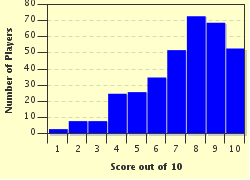Quiz Answer Key and Fun Facts
1. Which African was president of his country from 1971 until 1979 before being forced into exile in Saudi Arabia, where he died in 2003?
2. After abdicating the throne in 1936, the UK's King Edward VIII lived in France using which title?
3. Chiang Kai-shek fled mainline China in 1949, setting up an alternative government in which country?
4. King Zog was exiled, initially to England, in 1939 following an Italian invasion. Of which country was he the final king of the twentieth century?
5. Best remembered for his romantic exploits, Giacomo Casanova spent much of his life in exile from Venice, his birthplace.
6. Trotsky was exiled from the Soviet Union and lived in several places before settling in which country, where he was assassinated in 1940?
7. Tenzin Gyatso went into exile in 1959. He is better known by which title?
8. Ayatollah Khomeini spent fourteen years in exile before returning to become the ruler of which country in 1979?
9. In the mid seventeenth century, this future English king found himself exiled to mainland Europe, although he was later able to return and claim his throne, when he reigned under which name?
10. The monarchy was restored in Spain when Juan Carlos became king in 1975. He was born in exile in which European city?
Source: Author
rossian
This quiz was reviewed by FunTrivia editor
bloomsby before going online.
Any errors found in FunTrivia content are routinely corrected through our feedback system.
